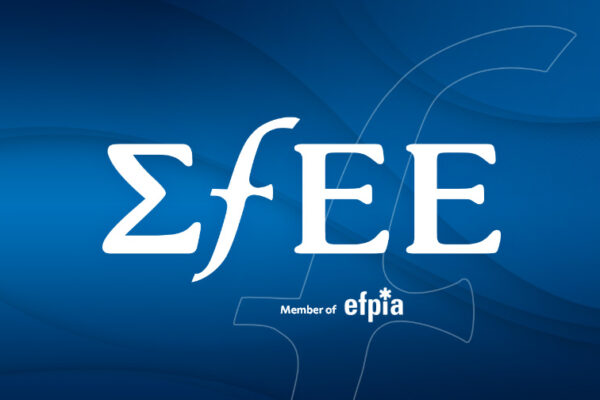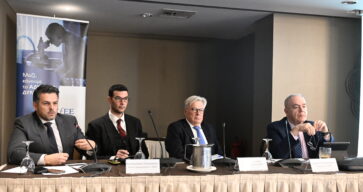
Reflection on Greek patients’ access to new, innovative treatments and the impact of underfunding
Athens, July 25, 2024.- The Hellenic Association of Pharmaceutical Companies (SFEE) held a Press Conference where it presented four (4) studies concerning Greek patients’ access to new, innovative treatments, the availability of innovative medicines and public funding for medicine.
Specifically:
- Patients W.A.I.T. Indicator (EFPIA-IQVIA) 2023
- The study showed that less pharmaceutical innovation reaches Greek patients, as 79 out of 167 new drugs came to Greece between 2019 – 2022 compared to 90 out of 168 in 2018 – 2021.
- In fact, half of them are available το patients with restrictions on access, as they are available through IFET.
- Regarding the time required for this availability, for these medicines it takes an average of 587 days from their European approval until they are reimbursed in our country. This is almost two months (56 days) below the European average but has improved by 74 days compared to the previous period.
- Root causes of availability and delay to innovative medicines
For the first time, a study was presented that in combination with the Patients W.A.I.T. Indicator study focuses on the main causes of unavailability of innovative medicines. Specifically:
- there are significant delays in the marketing of new medicines in Greece due to the 5/11 criterion, but also the level of mandatory returns for Greece, but also countries such as Cyprus and Malta.
- IQVIA study on the availability of new medicines in Greece during the period 2020 – 2023.
- 329 new medicines were approved by EMA between 1/1/2020 and 31/12/2023, of which 221 are new innovative medicines.
- Of the 221 new originator medicines, only 43 (19%) are currently available and reimbursed in the Greek market. The remaining 178 (81%) are not reimbursed.
- Of the 178 medicines that are not yet reimbursed in our country, only 35 have received a price, while the remaining 143 have not even received a price.
- Only 5 out of 35 (14%) new innovative medicines that have been priced are certain to be available in the future.
- Another 46 out of 143 (32%) new innovative medicines could potentially become available in the future.
- The dire business climate created by exorbitant returns has resulted in 53% of new innovative medicines probably not becoming available to Greek patients in the near future, as the study showed.
- Renewal of data of the study with data for 2022 on the Public funding of pharmaceutical expenditure in our country, compared to other European countries.
- Greece has a deviation of 70 percentage points from the European average, while it is the only country that reduced the total (outside and inside hospital) funding of the drug between 2013 and 2022.
- Greece is the only country to reduce public hospital funding for the drug, recording a deviation of 116 percentage points compared to the European average between 2013 and 2022. Specifically, the European average is +89.6% and Greece has fallen by -26.6%.
- Respectively, in outpatient public funding, Greece has a deviation of 56 percentage points from the European average, as the average of European countries is +42.5%, while Greece is at -11.09%.
- Comparing the total (hospital and out-of-hospital) Public funding per capita of the drug for 2022, the study recorded a significant lag of -64% and -70% compared to the countries of Southern Europe (NE) and Western Europe (DE) in public per capita Hospital Pharmaceutical Expenditure and a lag of -13% and -45% compared to NE and DE in public out-of-hospital Pharmaceutical Expenditure per capita. In the total public funding of medicine, Greece lags behind the countries of Southern and Western Europe.
In conclusion, the above studies clearly demonstrate that it is imperative to bring the State and the pharmaceutical industry around the table and build common solutions, starting with the significant deficit in public funding of medicine in the country, combined with improving return on investment through controls and the use of digital tools. We must ensure both equal, universal and timely access of Greek patients to new, innovative therapies and a sustainable business environment, so that companies in the sector can invest even more in the country. In recent years, SFEE has insisted on the signing of a multi-year memorandum of cooperation between the State and the pharmaceutical industry, which will contribute to predictability and transparency. We hope that we will soon proceed in this regard, following the recent announcements of the Minister of Health.



